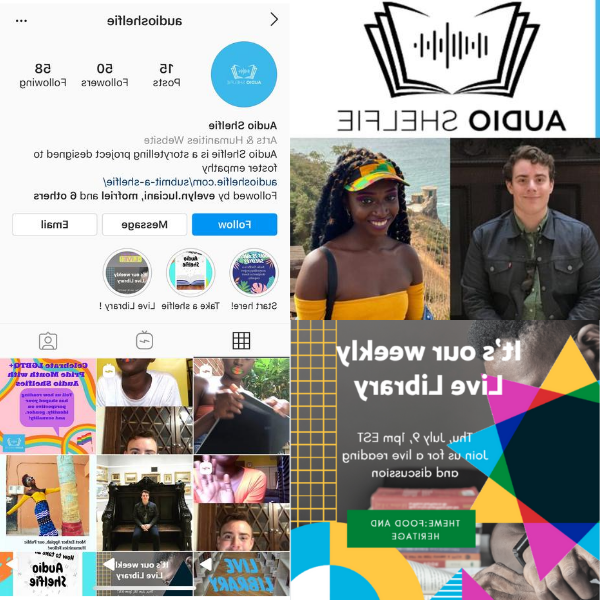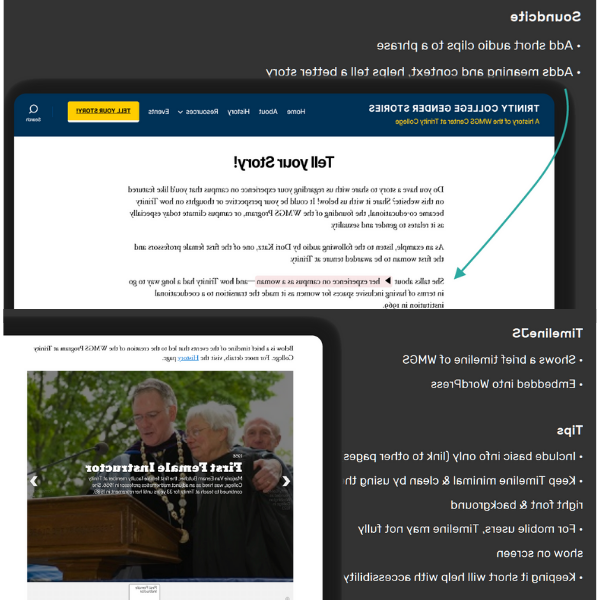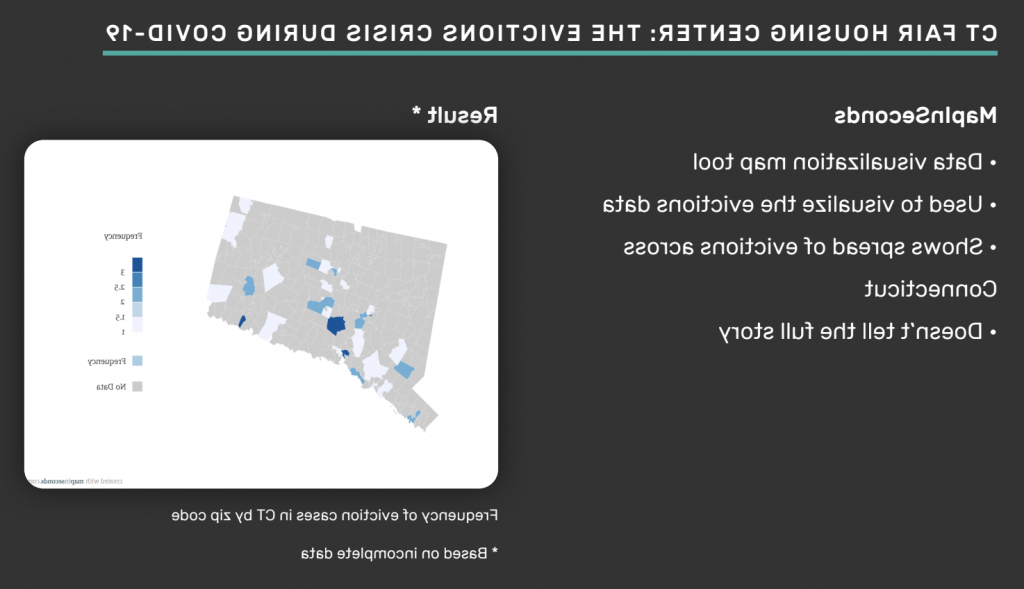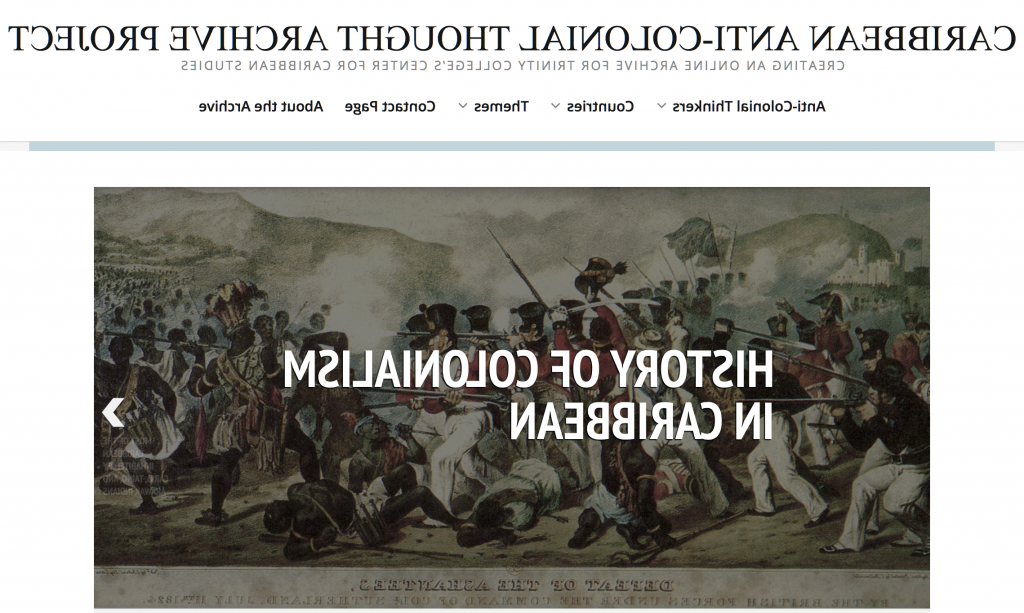2020 Public Humanities Collaborative Explores Digital Tools in Remote Work
This summer, Trinity’s Public Humanities Collaborative (PHC), a component of the Summer Research Program funded by the Andrew W. Mellon Foundation, went fully remote as students worked creatively with faculty and community partners. The Public Humanities Collaborative (PHC) brings together students, faculty, and individuals and organizations in Hartford to work on public humanities: the study of how people interpret stories of our human experience.
Over the ten weeks of the program students managed their time working with faculty and community partners on public humanities projects and participated in weekly lunch and learn workshops on Zoom to learn about a variety of topics in public humanities. In their projects students had the opportunity to engage in archival research, oral history interviewing, digital storytelling, story mapping, exhibit planning, social media engagement, website construction, and more. To enrich their field experience lunch and learn workshops focused on digital tools like Story Maps and Canva and discussed broader issues like ethical approaches to research and community projects and strategies for managing multiple projects.
In three years of PHC we have seen this program simultaneously present a challenge and opportunity for students to shift their way of thinking and working from that of a student to that of a paid research assistant. They were able to strategize with each other and with coordinator Megan Faver Hartline about how to manage project expectations, plus they reflected on what careers in the humanities looked like as they heard from partners with humanities backgrounds from Hartford History Center, YWCA Sexual Assault Crisis Services, Man on Fire LLC, and others.
During the summer, each project team was asked to present about their work and train the class in a digital tool or other skill they had learned through their project. Take a look at their presentations below.
Voces de la Migración: Archiving and Sharing the U.S. Latinx Experience in Hartford with Aidalí Aponte and Christina Bleyer, Trinity College, and Jasmin Agosto, Hartford History Center
 Zeinab Bakayoko ’23
Zeinab Bakayoko ’23
Karolina Barrientos ’22
Mia Conte ’22
Krystal Philson ’21
Wendy Salto ’22
Gabriel Sorondo Guirola ’23
The Voces de la Migración project team grew yet again this year! This is a digital archiving project between the Watkinson Library/Trinity Special Collections and Archives and the Hartford History Center at Hartford Public Library. Last year’s students collected oral history interviews, and this year Zeinab, Karolina, Mia, Krystal, Wendy and Gabriel each took an hour long interview (in English or Spanish) and indexed them using Oral History Metadata Synchronizer (OMHS), an archival software used to enhance oral histories through indexing and/or annotating the interview.
Audio Shelfie with Mary Mahoney, Trinity College, and various community partners across Connecticut
 Esther Appiah ’21
Esther Appiah ’21
Max Nortemann ’23
Esther and Max got creative this summer to work with Mary Mahoney to develop Audio Shelfie, a storytelling project designed to foster empathy by creating remote storytelling opportunities using themed prompts for Trinity and Hartford contributors. To conduct outreach activities, Max and Esther learned to use the graphic design tool Canva to create engaging graphics for Instagram, and they experienced hosting weekly Instagram Live conversations to solicit Audio Shelfie contributions. Prompts included topics like Covid-19, Black Lives Matter, Food & Heritage, and Gender, sexuality and identity. Mahoney was an incredible resource to Max and Esther in teaching them how to edit and showcase contributions using the software Hindenburg and Headliner.
Making Visible Trinity, Hartford, and Caribbean Histories with Janet Bauer, Trinity College Eviction Intervention and Prevention with Shaznene Hussain and Salmun Kazerounian, The Connecticut Fair Housing Center
 Ayesha Malik ’22
Ayesha Malik ’22
Hassan Rashid ’22
This summer Professor Janet Bauer asked Ayesha and Hassan to create a website archive of the WMGS program at Trinity with a focus on user interface (UI) and user experience (UX) design to ensure the ethnographic, audio, and video documentary content would be accessible and exciting for multiple public audiences. The students were challenged with finding digital tools like Dropbox, OneDrive and Google Docs to help compile and organize large amounts of data and the transcription app Trint to assist in transcribing interviews before moving to creating the web archive in WordPress (thanks Instructional Technologist Dave Tatem!). From there, they began using the graphic design tool Canva to create infographics, TimelineJS to embed a timeline of WMGS history directly into the site, and SoundCite to add audio clips of personal stories to pieces text on the site.
With Connecticut Fair Housing Center, Ayesha and Hassan were tasked with identifying eviction cases in Connecticut and determining whether they violated the evictions moratorium currently in place due to COVID-19. They used Google Sheets and excel to track evictions and then another tool MapinSeconds.com to present data visualizations that ID eviction hot spots in Connecticut.
Food, Wine, and World History with Jennifer Regan-Lefebvre, Trinity College Bringing American History to New Audiences with Rich Malley, Webb-Deane-Stevens Museum
 Jaymie Bianca ’21
Jaymie Bianca ’21
Kyre William-Smith ’21
Masho Strogoff ’22
Doris Wang ’21
Project management was an important skill that Jaymie, Kyre, Masho, and Doris leaned into this summer as they worked with Professor Jennifer Regan-Lefebvre and community partners at the Webb-Deane-Stevens Museum. Using Slack, a timely tool to learn during Covid, the students were able to effectively communicate with each other about multiple projects and ideas in a remote context. This was particularly helpful since each member of the group worked on an individual project for their community partner including creating social media content, designing educational programming, and translations for Chinese audiences. They learned new tools like Adobe Spark Video to create and edit videos with audio recordings on mobile devices and ArcGIS StoryMaps and Animaker to display information in an interactive way on the web.
Building an Online Archive of Caribbean Anti-Colonial Thought with Maurice Wade, Trinity College Investigating Welfare Liens with Shaznene Hussain and Sarah White, The Connecticut Fair Housing Center
Divina Lama ’21
Ananya Usharani Ravishankar ’21
Over the past two PHC cohorts we have had students work with Professor Maurice Wade on the Caribbean Anti-Colonial Thought Archive for Trinity’s Center for Caribbean Studies. This year, Divina and Ananya continued that work by identifying both original and secondary sources pertaining to Caribbean anti-colonial thought and determining how best to organize these materials for online presentation. You can view the archive here. Divina and Ananya also worked with community partners at Connecticut Fair Housing Center to investigate welfare liens, which allow the state to recover assistance funds someone has received in the past by demanding repayment when they purchase or refinance a home.
The Public Humanities Collaborative (PHC) is a summer research opportunity that brings together students, faculty, and individuals and organizations in Hartford to work on public humanities: the study of how people interpret stories of our human experience. PHC is a component of Trinity College’s Summer Research Program that is funded by a grant from the Andrew W. Mellon Foundation. To learn more, visit http://cher.365dafa6.com/phc




